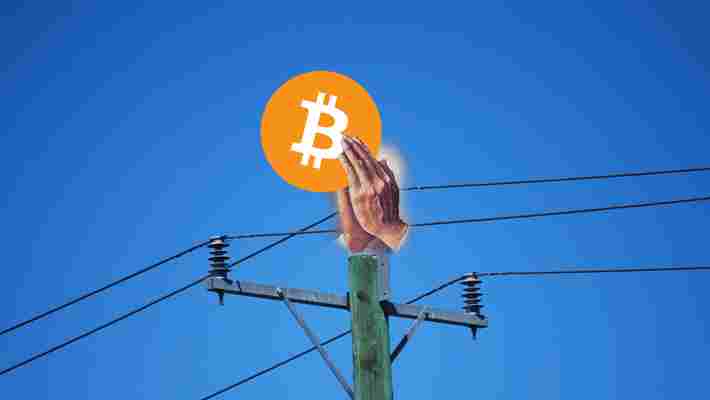Car manufacturer BMW has taken further steps in defining its blockchain strategy with the announcement of a new startup accelerator program.

Two were picked from a category specifically for blockchain startups. With this move, BMW hopes to streamline its “blockchain strategy.”
The first of the two blockchain-based proposals came from Supermoney, which is creating a new digital wallet. It claims to provide a platform for customers to buy online and in-store using QR codes.
The second comes from Bloom, which uses blockchain’s encryption principles to verify customer identity and credit history without storing the raw data on a localized server.
These, along with the other four startups, will be part the 10-week long accelerator program, known as the “BMW Financial Services Collaboration Lab.” Unfortunately, the auto-maker stopped short of clarifying precisely how things will progress once the Collaboration Lab campaign is over. It is also unclear if BMW will adopt the tech in its suite of tools and services.
Thee participants were announced last week, but it seems the post flew under the radar.
It’s worth pointing out that BMW Financial Services is the specific branch of the BMW Group responsible for the delivery of accounting, leasing, and financing products to other BMW brands.
Bearing that in mind, along with the nature of the two proposals, it would appear that BMW’s blockchain strategy – for the near future at least – is focused on applying the tech the financial side of its business.
It might be a while longer until the driving experience of a BMW vehicle is impacted directly by blockchain.
That said, back in February BMW Group UK announced an initiative aimed at incentivize drivers of leased or borrowed vehicles to record their mileage in exchange for redeemable tokens.
Blockchain and cryptocurrency is becoming a focus area for global corporate businesses. Microsoft has been making use of the tech to address spam calls in India. While IBM is launching educational courses in India which are struggling to keep up with demand.
Remember, sometimes these kinds of corporate forays aren’t always a success .
(Please note that this piece is not an endorsement of any of the companies mentioned above of their technology.)
We are thinking about Bitcoin’s energy usage in all the wrong ways
Global warming is certainly one of the humanity’s greatest challenges. For decades, public opinion has held heavily industrialized nations accountable for the damage done to our planet. In the quest to preserve Earth, it has become en vogue to critique Bitcoin mining for its high energy use and potentially harmful impact on the environment.

Towards the end of last year, the Bitcoin network was running on enough electricity to power more than 20 European nations . More recently, an article was run with the headline Bitcoin mining now accounts for almost one percent of the world’s energy consumption . Under a certain light, this is certainly true.
Bitcoin mining relies on Proof-of-Work to maintain its ledger. This mining network is made up of (and powered by) computers, which obviously use electricity. As adoption increases, more computers join the network, making the whole thing quite energy-intensive. Profit and efficiency is directly tied to energy input – a seemingly dangerous business model if electricity sources are not considered.
But while the data indicates that Bitcoin uses one percent of the world’s electricity, it misleadingly suggests that (if it wasn’t for Bitcoin) that electricity would not be produced – or necessary. In fact, often is the case that the electricity used to power Bitcoin mining farms comes from a surplus of energy that countries are desperate to unload.
In the case of green-energy solutions such as wind farms and solar, it is often very difficult to store or even sell that energy if the supply outweighs demand. This problem is particularly common in countries like China – where up to 70 percent of the world’s Bitcoin is being mined.
Reuters reported that “wasted [Chinese] wind power amounted to around 12 percent of total generation in 2017,” and distributing that surplus is proving incredibly difficult because other countries in the region are also energy-rich.
Simply put, countries that attract cryptocurrency miners with cheap electricity can do so because the supply greatly outstrips the demand. Cryptocurrency mining plays an important role in normalizing international energy markets by consuming power that would otherwise go to waste .
Andreas Antonopoulos, a prolific cryptocurrency researcher and influencer, has explained the situation quite succinctly:
What needs to be realised is that the advent of Bitcoin is effectively driving the decentralization of energy production, which Antonopolous notes is “one of the most important trends in human history.”
Having energy “stored” in the form of cryptocurrency offsets the costs involved of developing those solutions – especially now that we know that lots of renewable energy goes to waste. The Bitcoin mining industry actually contributes to the development of alternative energy solutions through the conversion of surplus energy into a valuable commodity, simply by making use of the electricity produced.
Canada’s largest utility, Hydro-Quebec, is a perfect example. Reuters reports that “ the province estimates it will have an energy surplus equivalent to 100 terawatt hours over the next 10 years. One terawatt hour powers 60,000 homes in Quebec during a year.”
Not surprisingly, Bitcoin mining operations have inundated Hydro-Quebec with applications to make use of the surplus. As such, profits have been steady, a whopping annual average of roughly $3 billion over the past four years.
[Edit: Hydro-Quebec has since clarified details of its profits, and this post has been updated to reflect its data. Particularly, it pointed out that the numbers relate specifically to its profit, not revenue, as was originally reported. Surely, an important distinction.]
So much money has been generated by lucrative deals that it was “forced” to share $45 million with its customers as profits exceeded the regulator-approved rate of return. This will surely act as inspiration for other nations to create similiar renewable energy solutions.
Attacking Bitcoin mining for its electricity usage is certainly easy – it’s an obvious target. In May, Ars Technica reported that by the end of this year, Bitcoin could consume up to 7.7 gigawatts.
Antonopoulos does concede there are challenges associated with managing Bitcoin’s electricity usage, but it is a complex discussion that requires consideration from many angles. The idea that by simply using electricity, Bitcoin must be bad, is nothing short of narrow-minded.
“This is a long game, […] the implications and complexity of how cost is allocated and how energy is consumed is huge,” Antonopolous declared. “I don’t think we can afford two Proof-of-Work systems on this planet, but I think we only need one.”
To which extent, the power to drive energy innovation, in the end, could be Bitcoin‘s “killer app.”
Update 09:20 UTC, 31 August: This piece has been (regretfully) edited to remove reference to some unfortunately executed math.
India’s biggest internet association forms committee to build a ‘blockchain ecosystem’
Despite the Reserve Bank of India’s directive that prevents Indian banks from working with cryptocurrency businesses, the country is still forging ahead to explore blockchain technology.

In a tweet yesterday, the Internet and Mobile Association of India announced the forming of a blockchain committee.
The committee will help the government and startups alike develop a blockchain ecosystem across India. It’s hoped this support will create jobs and boost the country’s economy.
“The IAMAI Blockchain Committee will focus on creating dialogue between all stakeholders; curate and create content to aid skill development and move towards creating a participative economy with the usage of blockchain,” said the blockchain committee’s chairperson, Tina Singh to the Economic Times .
The committee is made up of representatives from the likes of IBM, Microsoft, Mastercard, and Zebpay among many others, the Economic Times reports.
Zebpay’s inclusion in this committee is particularly interesting given that earlier in the year the cryptocurrency exchange platform removed the option for depositing and withdrawing Indian Rupees.
Perhaps India is just trying to get its head around the decentralized technology before making any more regulations.
Have you heard of Hard Fork Decentralized? Our three-day event centers around the future of blockchain and cryptocurrency. We’re currently offering an 85-percent discount on tickets. You might be eligible – check it out !











